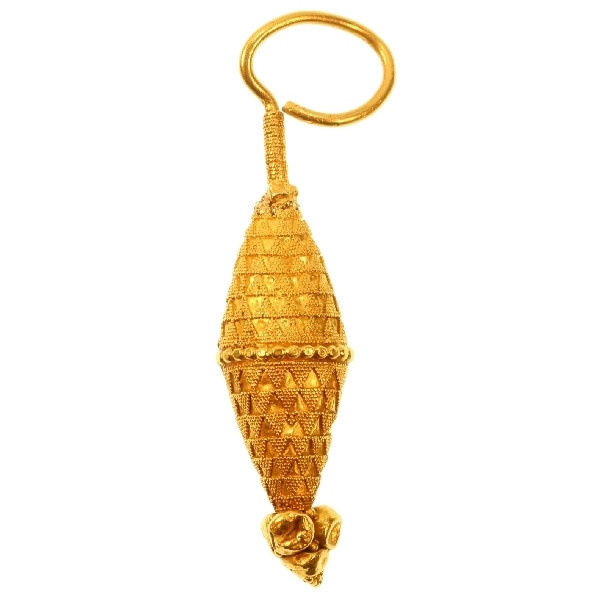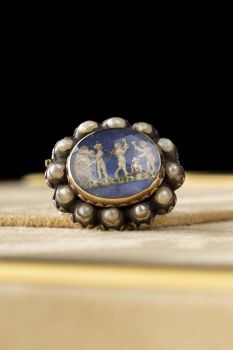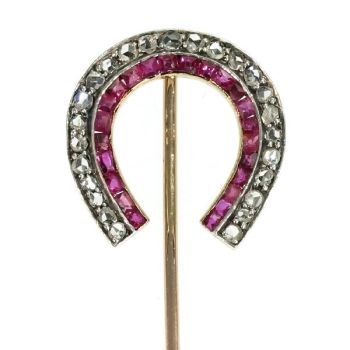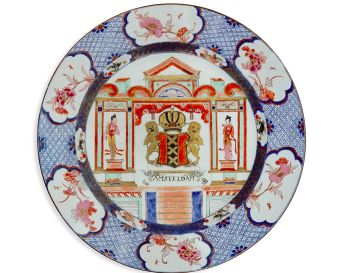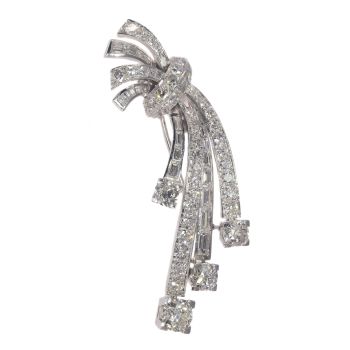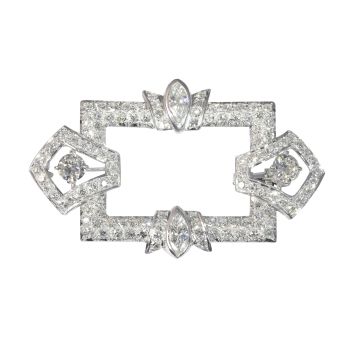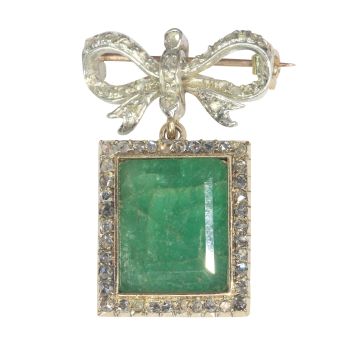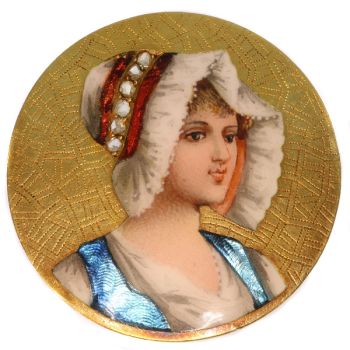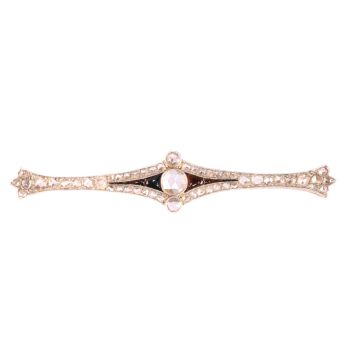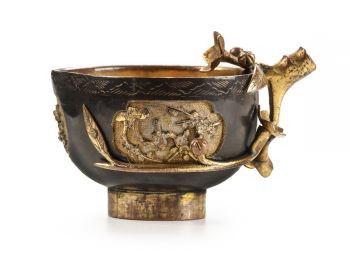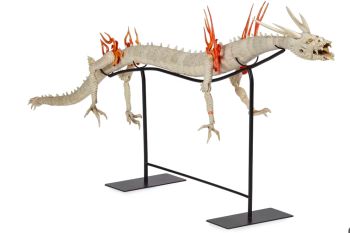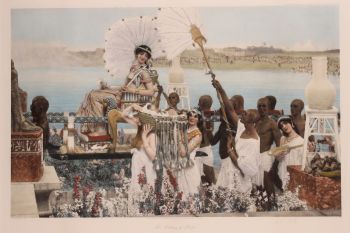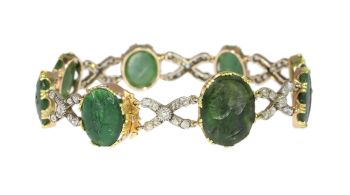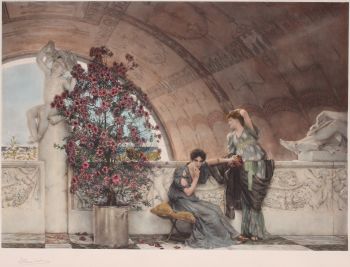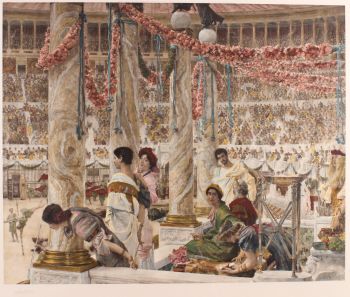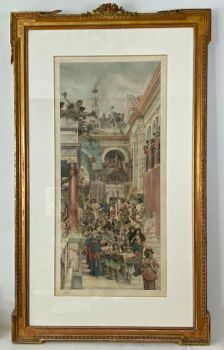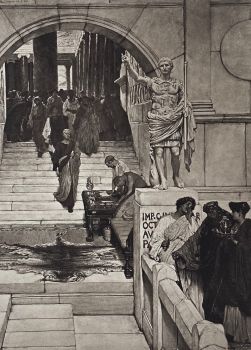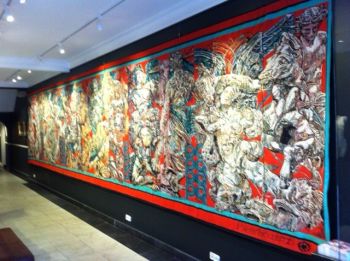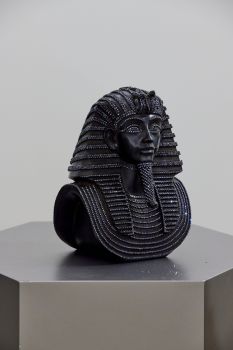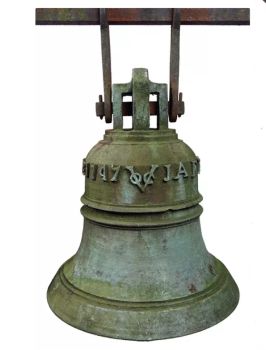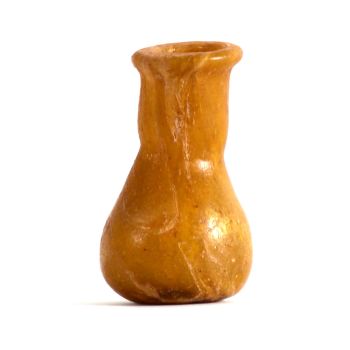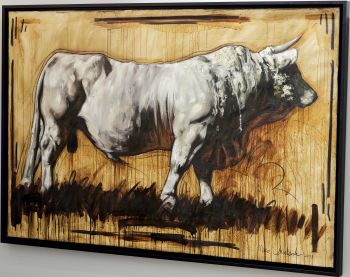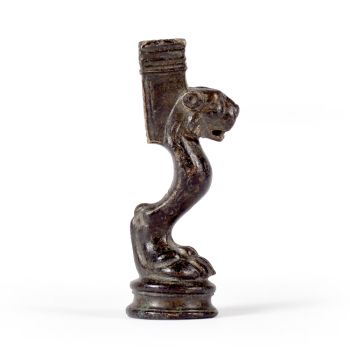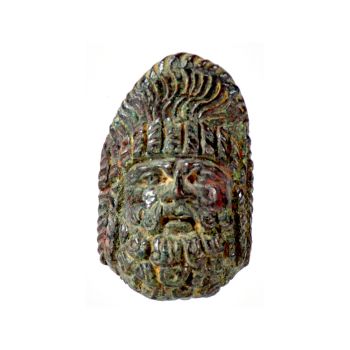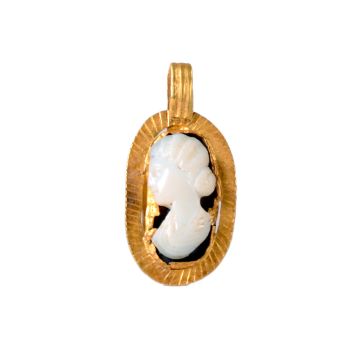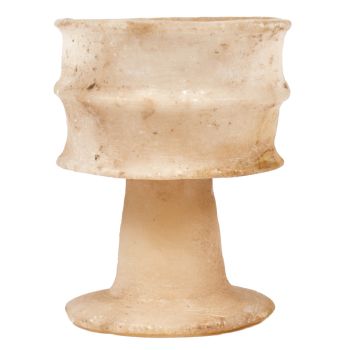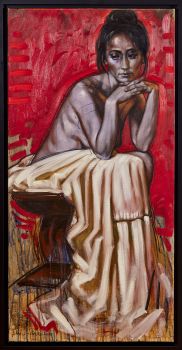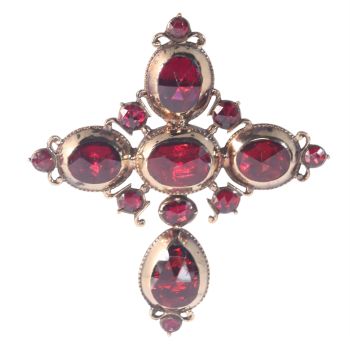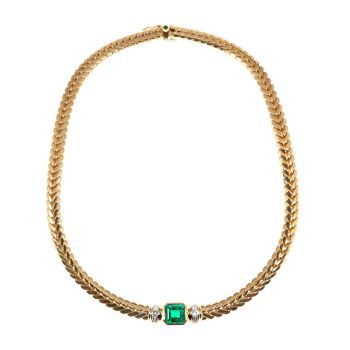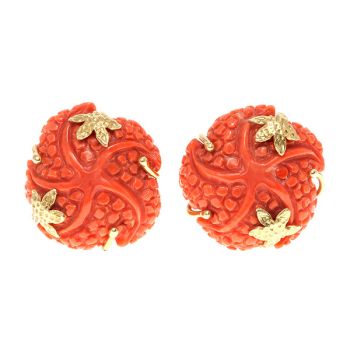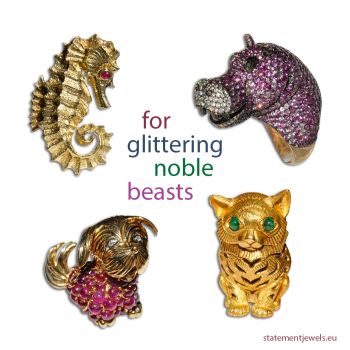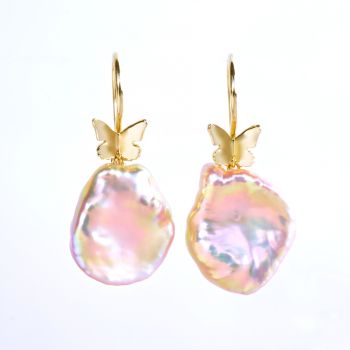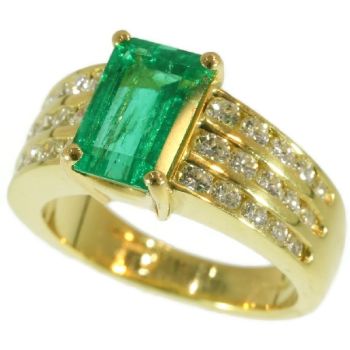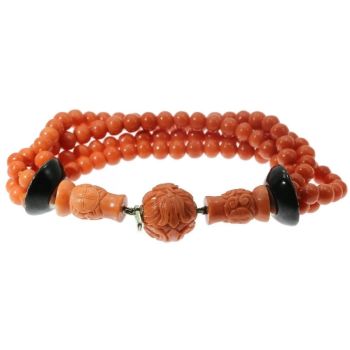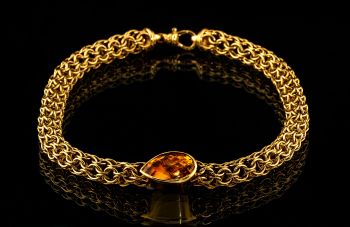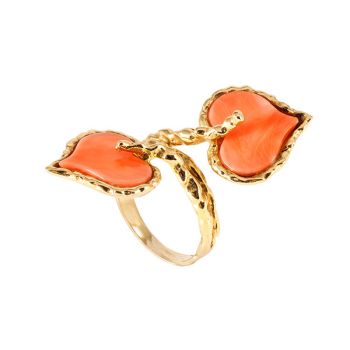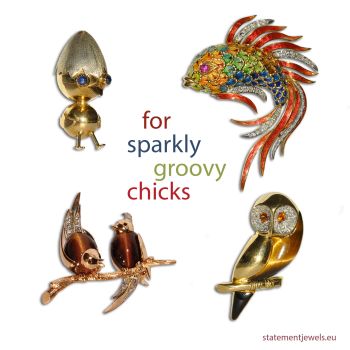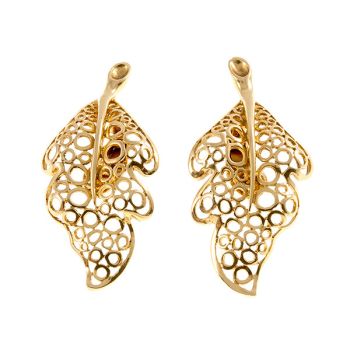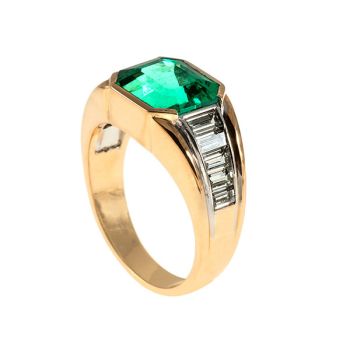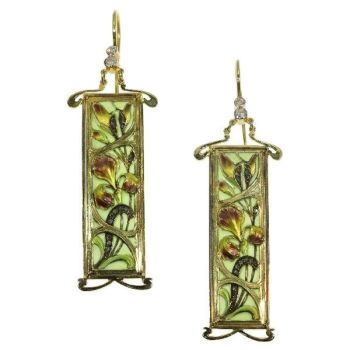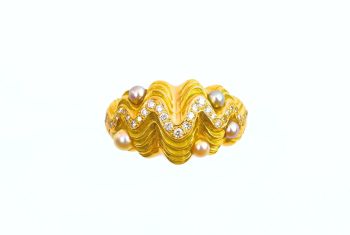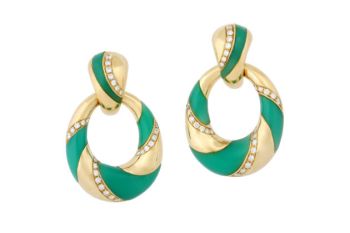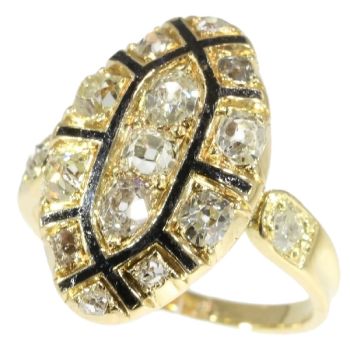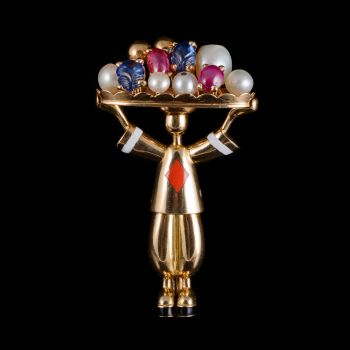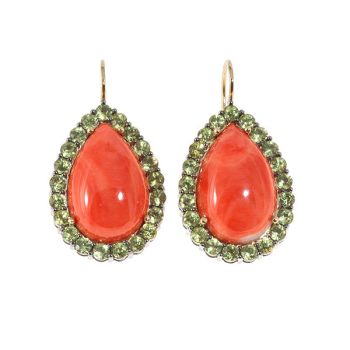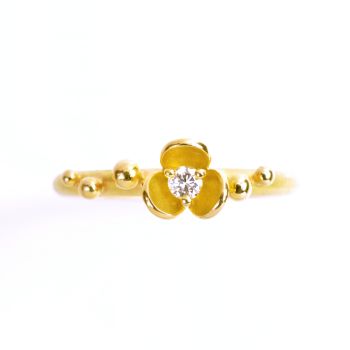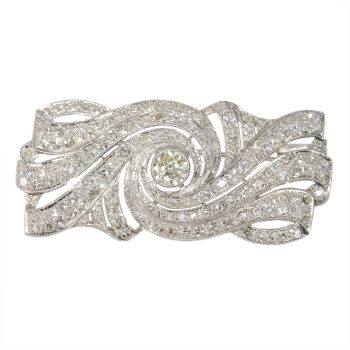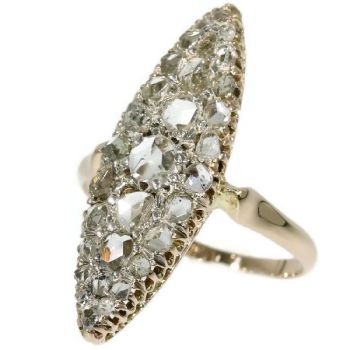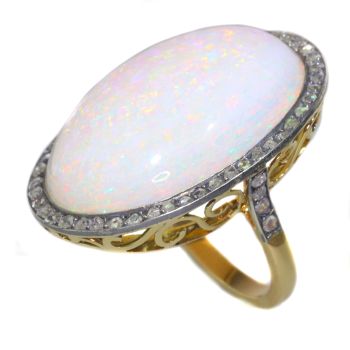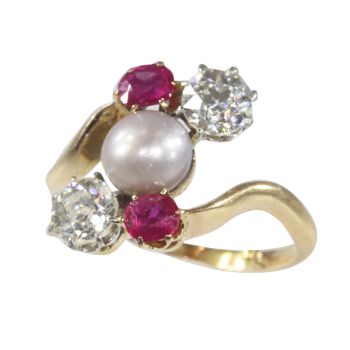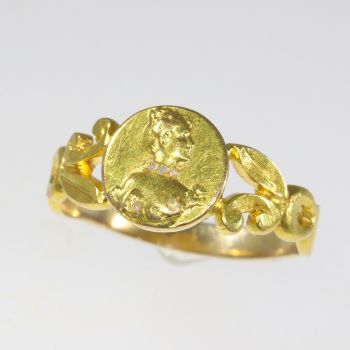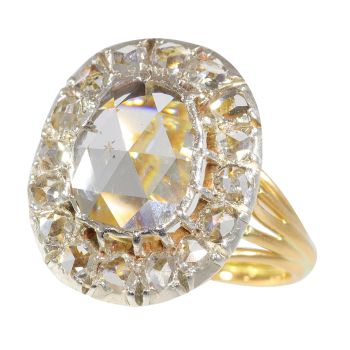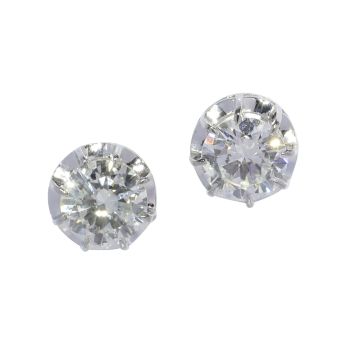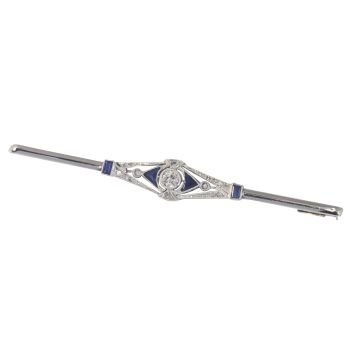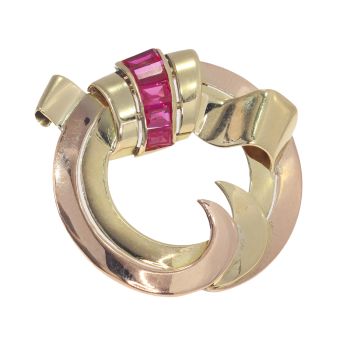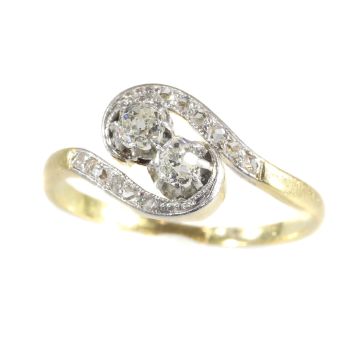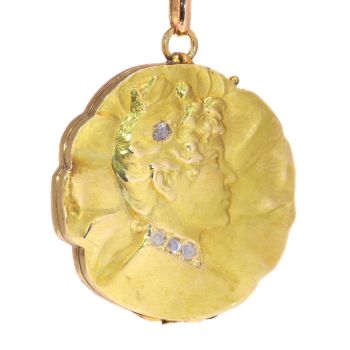Orecchino granulato in oro giallo antico 400
Artista Sconosciuto
Giallo oroOro
€ 9.250
Adin Fine Antique Jewellery
- A proposito di opere d'arte
Being crafted between fourteen and seventeen centuries ago, this ear pendant in a high gold alloy still exhibits the very essence of what a jewel should be: the adornment of a lady. While wearing this precious piece, it doesn't take long before you drift off to dreams about the journeys of its time travels into the 21st century.
From an ancient goldsmith's design into a tangible gold form, constructed out of a repetition of the strong triangle shape until the smallest granulation pattern in the ancient Caucasion style. Specially crafted to be worn by the greatest of its era and long after. Now, envision to where this remarkable jewel -worthy of a showroom in a museum- could lead you when you would just let it adorn you.
Country of origin : Caucasus
Style specifics : the granulation technique
Period : between the 4th Century and 7th Century A.D.
Material : yellow gold, at least 18K
Technique : Granulation. Granulation is a technique where the goldsmith uses very small balls (granules) of metal, which arenot soldered to the piece but welded. This technique demand very high skills and precision from the maker. Today with all the modern techniquesit's still very difficult to only match the quality of the goldsmiths that made this earring so many years ago!
Extra : A similar ear pendant is in the collection of the Schmuckmuseum in Pforzheim(museum of jewelry in Pforzheim, Germany) with inventory number 1957/4. Check our pictures for the inventory page of the Museum on this piece.
Weight : 8.20 gram (5.27 dwt)
Hallmarks : No trace
Condition : Extremely good condition considering its age
( click here for our condition scale)
It is a bit bent and shows some dents but that's not really exceptional considering it's age. We would describe this earring more as a treasure, an artifact. When we found it, it had a fissure in the top part, making it questionable if it would staytogether, so we had it repaired in the most modern way, with a laser. Like that the complete piece was not heated as it would have been the case if it was repaired in the old way. When it would have been done in the old way (heated with a flame) all thepatine (color of the piece that builds up over the years) would have been affected. The repair is very hard to see. Most of the time people only see it when being told. For the rest we kept it in it's original way, like it should be.
Dimensions : length approx. 7.00 cm (2.76 inch)
When referring to this piece : Mention the following number: 02157-3022 or click here.
Click on the following links to see more of our:
earrings
filigree & granules
Latest acquisitions. - A proposito di opere artista
Può succedere che un artista o un creatore sia sconosciuto.
Alcune opere non sono determinate da chi sono state realizzate o sono state realizzate da (un gruppo di) artigiani. Esempi sono statue dell'antichità, mobili, specchi o firme non chiare o leggibili ma anche alcune opere non sono affatto firmate.
Inoltre puoi trovare la seguente descrizione:
•"Attribuito a …." A loro avviso probabilmente opera dell'artista, almeno in parte
•“Studio di ….” o “Officina di” A loro avviso un'opera eseguita nello studio o nella bottega dell'artista, eventualmente sotto la sua supervisione
•“Cerchio di…” A loro avviso un'opera del periodo dell'artista che mostra la sua influenza, strettamente legata all'artista ma non necessariamente al suo allievo
•"Stile di..." o "Seguace di..." A loro avviso un'opera eseguita nello stile dell'artista ma non necessariamente da un allievo; può essere contemporaneo o quasi contemporaneo
•“Modalità di…” A loro avviso un'opera nello stile dell'artista ma di epoca successiva
•"Dopo …." A loro avviso una copia (di qualsiasi data) di un'opera dell'artista
•“Firmato…”, “Datato…” o “Iscritto” A loro avviso l'opera è stata firmata/datata/inscritta dall'artista. L'aggiunta di un punto interrogativo indica un elemento di dubbio
•"Con firma....", "Con data...", "Con iscrizione..." o “Riporta firma/data/iscrizione” a loro avviso la firma/data/iscrizione è stata aggiunta da qualcuno diverso dall'artista
Sei interessato ad acquistare questa opera d'arte?
Artwork details
Related artworks
- 1 - 4 / 12
Artiste Inconnu
Bracelet en diamant du XVIIIe siècle avec intailles vieilles de 2000 ans1790
€ 23.000Adin Fine Antique Jewellery
 Sélectionné par
Sélectionné parDanny Bree
Lawrence Alma-Tadema
"Caracalla and Geta: Bear Fight in The Coliseum, AD 203" 1907
Prix sur demandeGallerease Selected
 Sélectionné par
Sélectionné parDanny Bree
Lawrence Alma-Tadema
"Caracalla and Geta: Bear Fight in The Coliseum, AD 203" 1907
Prix sur demandeGallerease Selected
 Sélectionné par
Sélectionné parDanny Bree
1 - 4 / 12Artiste Inconnu
The bell of the VOC fortress in Jaffna, Sri Lanka1747
Prix sur demandeZebregs & Röell - Fine Art - Antiques
 Sélectionné par
Sélectionné parDanny Bree
1 - 4 / 12- 1 - 4 / 24
- 1 - 4 / 12

